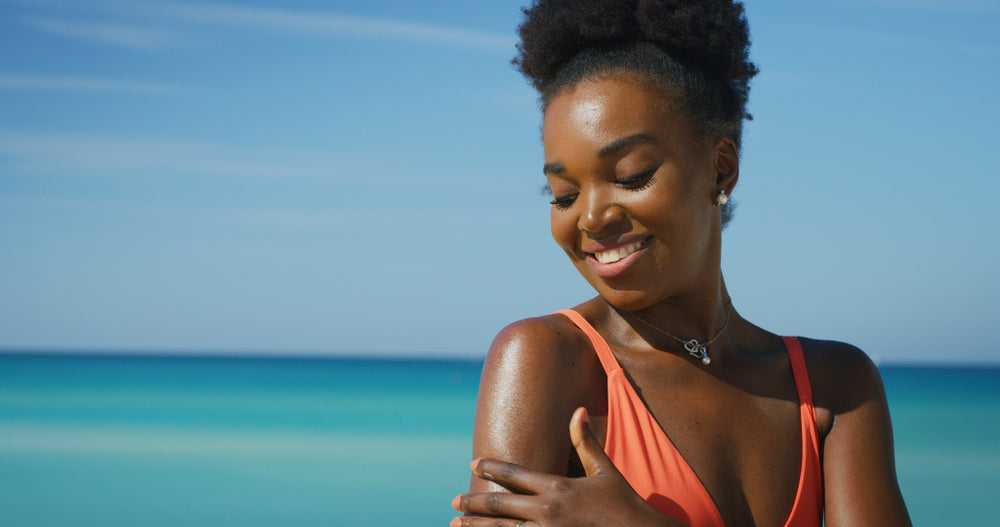I don't know. I would try but the thing is, at these hours the gym is filled with people, and I only hacve the gym as a place to get shirtless and lay down on the sun. The beach is too far from here for that.The best time for sun exposure seems to be in the hour or two right after and before sunset. This is based on my personal subjective feelings. Seems to exert a profound calming effect that middat sun does not. Maybe the angle of the sun changes the frequency distribution to something more beneficial.
Navigation
Install the app
How to install the app on iOS
Follow along with the video below to see how to install our site as a web app on your home screen.
Note: This feature may not be available in some browsers.
More options
-
By using this site you agree to the terms, rules, and privacy policy.
-
Charlie's Restoration Giveaway #2 (Entire Home EMF Mitigation & Protection Along With Personal Protection) - Click Here To Enter
-
Dear Carnivore Dieters, A Muscle Meat Only Diet is Extremely Healing Because it is a Low "vitamin A" Diet. This is Why it Works so Well...
Rest the rest of this post by clicking here
-
The Forum is transitioning to a subscription-based membership model - Click Here To Read
Click Here if you want to upgrade your account
If you were able to post but cannot do so now, send an email to admin at raypeatforum dot com and include your username and we will fix that right up for you.
You are using an out of date browser. It may not display this or other websites correctly.
You should upgrade or use an alternative browser.
You should upgrade or use an alternative browser.
Should I avoid sunbathing at 13pm to 14pm with no sunscreen?
- Thread starter rayban
- Start date

How to Safely Get Vitamin D From The Sun
Regular sun exposure is the most natural way to get enough vitamin D, but too much sunlight comes with health risks. This article explains how to safely get vitamin D from the sun.
 www.healthline.com
Expose Your Skin Around Midday
www.healthline.com
Expose Your Skin Around Midday
Midday, especially during summer, is the best time to get sunlight.
How to Safely Get Vitamin D From The Sun
Regular sun exposure is the most natural way to get enough vitamin D, but too much sunlight comes with health risks. This article explains how to safely get vitamin D from the sun.
At noon, the sun is at its highest point, and its UVB rays are most intense. That means you need less time in the sun to make sufficient vitamin D (5Trusted Source).
Many studies also show that the body is most efficient at making vitamin D at noon (6Trusted Source, 7Trusted Source).
For example, in the UK, 13 minutes of midday sunlight exposure during summer three times per week is enough to maintain healthy levels among Caucasian adults (5Trusted Source).
Another study found that 30 minutes of midday summer sun exposure in Oslo, Norway was equivalent to consuming 10,000–20,000 IU of vitamin D (8Trusted Source).
The commonly recommended daily dose of vitamin D is 600 IU (15 mcg) (3Trusted Source).
Not only is getting vitamin D around midday more efficient, but it might also be safer than getting sun later in the day. One study found that afternoon sun exposure may increase the risk of dangerous skin cancers (9Trusted Source).

How to Safely Get Vitamin D From The Sun
Regular sun exposure is the most natural way to get enough vitamin D, but too much sunlight comes with health risks. This article explains how to safely get vitamin D from the sun.www.healthline.com
Expose Your Skin Around Midday
Midday, especially during summer, is the best time to get sunlight.
At noon, the sun is at its highest point, and its UVB rays are most intense. That means you need less time in the sun to make sufficient vitamin D (5Trusted Source).
Many studies also show that the body is most efficient at making vitamin D at noon (6Trusted Source, 7Trusted Source).
For example, in the UK, 13 minutes of midday sunlight exposure during summer three times per week is enough to maintain healthy levels among Caucasian adults (5Trusted Source).
Another study found that 30 minutes of midday summer sun exposure in Oslo, Norway was equivalent to consuming 10,000–20,000 IU of vitamin D (8Trusted Source).
The commonly recommended daily dose of vitamin D is 600 IU (15 mcg) (3Trusted Source).
Not only is getting vitamin D around midday more efficient, but it might also be safer than getting sun later in the day. One study found that afternoon sun exposure may increase the risk of dangerous skin cancers (9Trusted Source).
What about the studies that claim that vitamin D synthesis is not blocked by sunscreen and that this is a myth?
Your body is more effecient at making vitamin d in the noon time than in the morning or after 4 pm.
 vitamindwiki.com
vitamindwiki.com
Always, it's best to avoid showering after sunbathing if you read this:
 vitamindwiki.com
vitamindwiki.com
No – 10 minutes per day of sun-UVB is NOT enough | VitaminDWiki
Science-based Vitamin D
Always, it's best to avoid showering after sunbathing if you read this:
Vitamin D may be lost by showering after sunbathing – 2009 | VitaminDWiki
Science-based Vitamin D
Yeah but sunscreens wise... show me some evidence that proves using sunscreen can lead to a vitamin D deficit.Your body is more effecient at making vitamin d in the noon time than in the morning or after 4 pm.
No – 10 minutes per day of sun-UVB is NOT enough | VitaminDWiki
Science-based Vitamin Dvitamindwiki.com
Always, it's best to avoid showering after sunbathing if you read this:
Vitamin D may be lost by showering after sunbathing – 2009 | VitaminDWiki
Science-based Vitamin Dvitamindwiki.com
I get that sunscreen blocks it but where is the evidence that proves using it actually leads to a vitamin D deficit.
Because if you use sunscreen, but you get less dose but still enough, and you are safer from melanomas and so on, then why would you not use sunscreen.
I'm sure i have read it before many times that sunscreen blocks vitamin d production in the skin, for now i have this:Yeah but sunscreens wise... show me some evidence that proves using sunscreen can lead to a vitamin D deficit.
I get that sunscreen blocks it but where is the evidence that proves using it actually leads to a vitamin D deficit.
Because if you use sunscreen, but you get less dose but still enough, and you are safer from melanomas and so on, then why would you not use sunscreen.

Sunscreen photoprotection and vitamin D status
Global concern about vitamin D deficiency has fuelled debates on photoprotection and the importance of solar exposure to meet vitamin D requirements.To review the published evidence to reach a consensus on the influence of photoprotection by sunscreens ...
Also, you can apply sunscreen in your face only and let the other wid body parts uncovered, i believe the face is a sensitive part for uv radiation unlike the wider parts of the body like the back, chest and legs.
David PS
Member
It not that clear cut.Always, it's best to avoid showering after sunbathing if you read this:
Vitamin D may be lost by showering after sunbathing – 2009 | VitaminDWiki
Science-based Vitamin Dvitamindwiki.com

Will a Shower After Sunbathing Wash Away Vitamin D?
Although some websites express concern that taking a shower after sunbathing will wash off all the vitamin D formed by the skin, this appears unlikely.
The study you linked says this:I'm sure i have read it before many times that sunscreen blocks vitamin d production in the skin, for now i have this:

Sunscreen photoprotection and vitamin D status
Global concern about vitamin D deficiency has fuelled debates on photoprotection and the importance of solar exposure to meet vitamin D requirements.To review the published evidence to reach a consensus on the influence of photoprotection by sunscreens ...www.ncbi.nlm.nih.gov
Also, you can apply sunscreen in your face only and let the other wid body parts uncovered, i believe the face is a sensitive part for uv radiation unlike the wider parts of the body like the back, chest and legs.
Sunscreen use for daily and recreational photoprotection does not compromise vitamin D synthesis, even when applied under optimal conditions.
So basically you can use sunscreen. Then where does this "don't use sunscreen" saying comes from? is just another repeated myth.
Yes, it seems there is not enough evidence that sunscreen block vitamin d, it may affect it and it may not.The study you linked says this:
Sunscreen use for daily and recreational photoprotection does not compromise vitamin D synthesis, even when applied under optimal conditions.
So basically you can use sunscreen. Then where does this "don't use sunscreen" saying comes from? is just another repeated myth.

Does Sunscreen Block Vitamin D? Debunking the Myth
Getting enough vitamin D is important so your body can function properly. Vitamin D helps build strong bones and teeth, can regulate your mood and fight depression, and can even support weight loss. The best way to get enough vitamin D is through regular sun exposure. You should aim for around...

The effect of sunscreen on vitamin D: a review - PubMed
There is little evidence that sunscreen decreases 25(OH)D concentration when used in real-life settings, suggesting that concerns about vitamin D should not negate skin cancer prevention advice. However, there have been no trials of the high-SPF sunscreens that are now widely recommended. What's...
Yes, it seems there is not enough evidence that sunscreen block vitamin d, it may affect it and it may not.

Does Sunscreen Block Vitamin D? Debunking the Myth
Getting enough vitamin D is important so your body can function properly. Vitamin D helps build strong bones and teeth, can regulate your mood and fight depression, and can even support weight loss. The best way to get enough vitamin D is through regular sun exposure. You should aim for around...www.colorescience.com

The effect of sunscreen on vitamin D: a review - PubMed
There is little evidence that sunscreen decreases 25(OH)D concentration when used in real-life settings, suggesting that concerns about vitamin D should not negate skin cancer prevention advice. However, there have been no trials of the high-SPF sunscreens that are now widely recommended. What's...pubmed.ncbi.nlm.nih.gov
So where does this anti sunscreen thing comes from?
Probably some old research or myth.So where does this anti sunscreen thing comes from?
Does sunscreen compromise vitamin D levels? Maybe not
Sunscreen can reduce the sun's adverse effects, but there are concerns that it might inhibit the body's production of vitamin D. In a new study, however, investigators recorded an increase of vitamin D in participants during a week of cloudless weather, with very high UV index, even when...
www.sciencedaily.com
I think if sunscreen doesn't block vitamin d you should use a natural sunscreen anyway like zinc oxide, most sunscreens have endocrine disruptor chemicals.
David PS
Member
EMF Mitigation - Flush Niacin - Big 5 Minerals
Similar threads
- Replies
- 24
- Views
- 7K
- Replies
- 101
- Views
- 29K
- Replies
- 10
- Views
- 66K
- Replies
- 1
- Views
- 3K
- Replies
- 5
- Views
- 3K
- Replies
- 74
- Views
- 28K
- Replies
- 12
- Views
- 6K
- Replies
- 5
- Views
- 13K
